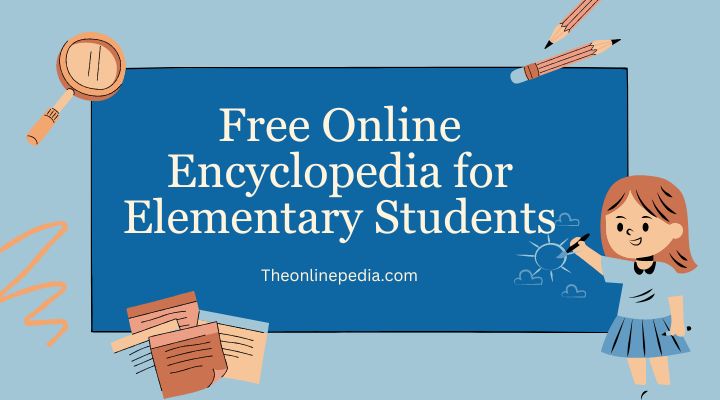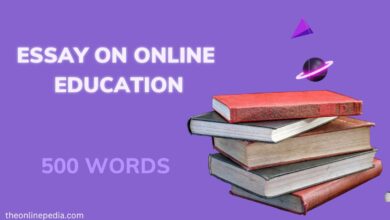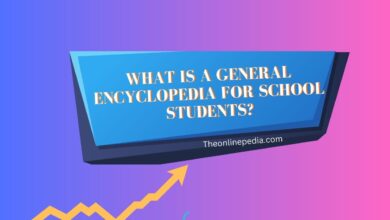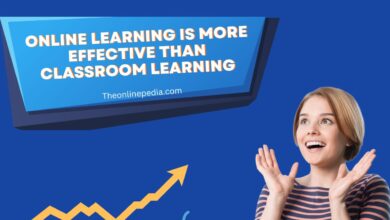The Ultimate Guide to a Free Online Encyclopedia for Elementary Students

Do you know, In the digital world, the internet has become an precious resource for students of all ages. Do you know free online encyclopedia for elementary students? If you don’t know then must stay with us to know about it!
When it comes to elementary students, a free online encyclopedia is an excellent tool for research and learning. With a vast collection of articles and information, these platforms provide a safe and reliable way for young learners to explore various subjects. In this comprehensive guide, we will explore into the world of free online encyclopedias, their benefits, and how to make the most of them to support elementary students’ education.
Free Online Encyclopedia for Elementary Students: A Gateway to Knowledge
As a parent or educator, you may be wondering, “What is a free online encyclopedia, and how can it benefit elementary students?” Well, fret not! We have got you covered.
What is a Free Online Encyclopedia?
A free online encyclopedia is a digital platform that offers a wealth of information on a wide range of topics. These platforms are designed to be user-friendly and accessible for students of all ages, including elementary students. They provide a comprehensive collection of articles, images, and multimedia resources that can be used for research purposes or simply to satisfy a curious mind.
Benefits of a Free Online Encyclopedia for Elementary Students
Using a free online encyclopedia has numerous advantages for elementary students. Here are some key benefits:
Vast Information: Free online encyclopedias provide a vast collection of information on various subjects, allowing students to explore and expand their knowledge.
Reliable and Trustworthy: These platforms are curated by experts in their respective fields, ensuring the information presented is accurate and reliable.
Safe and Child-Friendly: Free online encyclopedias prioritize the safety of young learners, ensuring the content is appropriate for their age group and free from explicit or harmful material.
Interactive Learning: Many free online encyclopedias offer interactive features such as quizzes, videos, and games, making the learning process engaging and enjoyable for elementary students.
Encourages Research Skills: Using an encyclopedia instills valuable research skills in students from an early age, teaching them how to find relevant and trustworthy information.
Supports Independent Learning: With a free online encyclopedia, students can explore subjects of their interest independently, fostering a sense of curiosity and self-directed learning.
Accessible Anywhere, Anytime: Online encyclopedias can be accessed from any internet-connected device, allowing students to continue their learning beyond the classroom.
Now that we have explored the benefits of using a free online encyclopedia, let’s take a closer look at some popular platforms that cater specifically to elementary students.
Top Free Online Encyclopedias for Elementary Students
When it comes to choosing the right free online encyclopedia for elementary students, several options stand out due to their content quality and user-friendly interfaces. Here are some of the top platforms worth exploring:
1. Encyclopedia Britannica Kids
Encyclopedia Britannica Kids is a famous online encyclopedia that offers a wealth of information personalized for young learners. With articles, images, and videos covering a wide range of subjects, it provides a comprehensive source for elementary students to conduct research and enhance their understanding of several topics.
Key Features:
- Interactive articles with engaging multimedia elements
- Quizzes and games to test knowledge and reinforce learning
- User-friendly interface designed for elementary students
- Regularly updated content to ensure accuracy and relevance
2. National Geographic Kids
National Geographic Kids is an online platform that chains education and entertainment, providing elementary students with a attractive way to learn about the world around them. With a focus on nature, science, and exploration, it offers charming articles, videos, and activities that spark curiosity and inspire young minds.
Key Features:
- Stunning photography and videos to bring learning to life
- Fun facts, quizzes, and games for interactive learning
- In-depth articles on animals, geography, and scientific concepts
- Opportunities to explore careers and the wonders of nature
3. DK Find Out!
DK Find Out! is an online encyclopedia specifically planned for elementary students. It covers a extensive range of subjects, including history, science, nature, and more. With its colorful artworks, concise articles, and interactive features, DK Find Out! makes learning engaging and accessible for young learners.
Key Features:
- Bite-sized articles with clear and concise explanations
- Interactive quizzes and games for self-assessment
- Cross-curricular content to support various subjects
- Exploration of historical events, scientific concepts, and more
4. Fact Monster
Fact Monster is a free online encyclopedia that emphases on providing elementary students with dependable and age-appropriate information. It covers a wide range of subjects, including geography, history, math, and more. With its easy-to-navigate interface and engaging content, Fact Monster serves as a valuable resource for young learners.
Key Features:
- Homework help section with study tips and resources
- Interactive quizzes, puzzles, and games for interactive learning
- Tools such as a dictionary, calculator, and conversion charts
- Fun facts and interesting trivia to pique students’ curiosity
5. KidsKonnect
KidsKonnect is an online platform that offers a vast collection of articles, worksheets, and activities for elementary students. It covers a wide range of subjects, including science, history, geography, and more. With its comprehensive content and interactive resources, KidsKonnect provides a valuable tool for supporting elementary students’ learning.
Key Features:
- Thematic units with multiple resources on specific topics
- Worksheets and printable materials for hands-on learning
- Quizzes and puzzles for self-assessment
- Regularly updated content to align with curriculum standards
These are just a few examples of the many free online encyclopedias available for elementary students. Each platform offers unique features and content, so it’s worth exploring multiple options to find the best fit for your child or students.
The Most Popular Free Online Encyclopedia in the World for Students
When it comes to gathering information and conducting research, online encyclopedias have become an indispensable resource for students worldwide. With a wealth of knowledge at their fingertips, students can explore a wide range of topics and enhance their understanding of various subjects. In this article, we will explore the most popular free online encyclopedia in the world for students, highlighting its features, benefits, and why it has gained widespread recognition among learners of all ages.
The Power of Knowledge at No Cost
As the digital landscape continues to evolve, the availability of free online encyclopedias has revolutionized the way students access information. Gone are the days of relying solely on printed encyclopedias or library resources. Now, students can harness the power of the internet to access a vast collection of articles, images, and multimedia content.
The Most Popular Free Online Encyclopedia: Wikipedia
When it comes to free online encyclopedias, one name stands out above the rest: Wikipedia. Launched in 2001, Wikipedia has become the go-to source of information for millions of students around the world.
What sets Wikipedia apart from other online encyclopedias is its collaborative nature. It relies on the collective efforts of volunteers who contribute, edit, and verify its content.
Why is Wikipedia the Most Popular?
Wikipedia’s popularity can be attributed to several factors that make it an exceptional resource for students:
Vast Coverage: Wikipedia covers an astonishingly broad range of topics, from history and science to arts and culture. Whatever subject a student is researching, chances are they will find relevant information on Wikipedia.
Global Community: With contributors from all over the world, Wikipedia benefits from the collective knowledge and expertise of a diverse group of individuals. This global community ensures that the information presented is comprehensive and well-researched.
Constantly Updated: Wikipedia’s content is continuously evolving and being updated. As new discoveries are made and new information emerges, volunteers promptly add and revise articles, ensuring that the content remains current and accurate.
Multilingual: One of the key strengths of Wikipedia is its availability in multiple languages. Students from different regions and language backgrounds can access information in their native languages, fostering inclusivity and accessibility.
User-Friendly Interface: Wikipedia’s interface is designed to be user-friendly, making it easy for students to navigate and find the information they need. The search functionality is intuitive, and articles are organized into sections for easy reading and comprehension.
Rich Multimedia Content: Wikipedia incorporates images, videos, graphs, and charts into its articles, enhancing the learning experience for students. Visual representations of concepts and ideas can aid in understanding and retention.
Credibility and Reliability: While Wikipedia has faced criticisms regarding its accuracy in the past, the platform has implemented strict editorial policies and mechanisms to ensure content reliability. The community of editors monitors and fact-checks articles, maintaining a high standard of accuracy.
External References: Wikipedia articles often include external references and citations, allowing students to explore further and verify information from reliable sources. These references provide a starting point for students to delve deeper into specific subjects.
Open Access: Perhaps the most significant advantage of Wikipedia is that it is completely free to access. Students can explore its vast collection of information without any paywalls or subscription fees, democratizing knowledge and ensuring equal access for all.
Frequently Asked Questions (FAQs)
What makes a free online encyclopedia suitable for elementary students?
A free online encyclopedia suitable for elementary students should provide age-appropriate content, be user-friendly, and offer interactive elements to engage young learners effectively.
Are free online encyclopedias reliable sources of information for research purposes?
Yes, reputable free online encyclopedias are considered reliable sources of information as they are curated by experts and undergo rigorous review processes to ensure accuracy.
Can free online encyclopedias replace traditional textbooks?
While free online encyclopedias are excellent supplementary resources, they should not replace traditional textbooks entirely. Textbooks offer structured content aligned with specific curriculum standards.
Are free online encyclopedias accessible on mobile devices?
Yes, most free online encyclopedias are accessible on mobile devices through dedicated apps or responsive websites, allowing students to access information anytime, anywhere.
How can I encourage my child to use a free online encyclopedia effectively?
Encourage your child to explore topics they are interested in, guide them to reliable sources, and teach them critical thinking skills to evaluate and cross-reference information.
Are there any costs associated with using free online encyclopedias?
The majority of free online encyclopedias are available at no cost. However, some platforms may offer premium features or additional resources through paid subscriptions.
Conclusion
A free online encyclopedia for elementary students is an vital tool for nurturing curiosity, independent learning, and research skills. With their vast collections of information, interactive features, and age-appropriate content, these platforms provide a safe and reliable gateway to knowledge. By exploring reputable platforms like Encyclopedia Britannica Kids, National Geographic Kids, DK Find Out!, Fact Monster, and KidsKonnect, you can support elementary students’ educational journey and help them develop a lifelong love for learning.
So, what are you waiting for? Dive into the world of free online encyclopedias and unlock the wonders of knowledge for elementary students!



